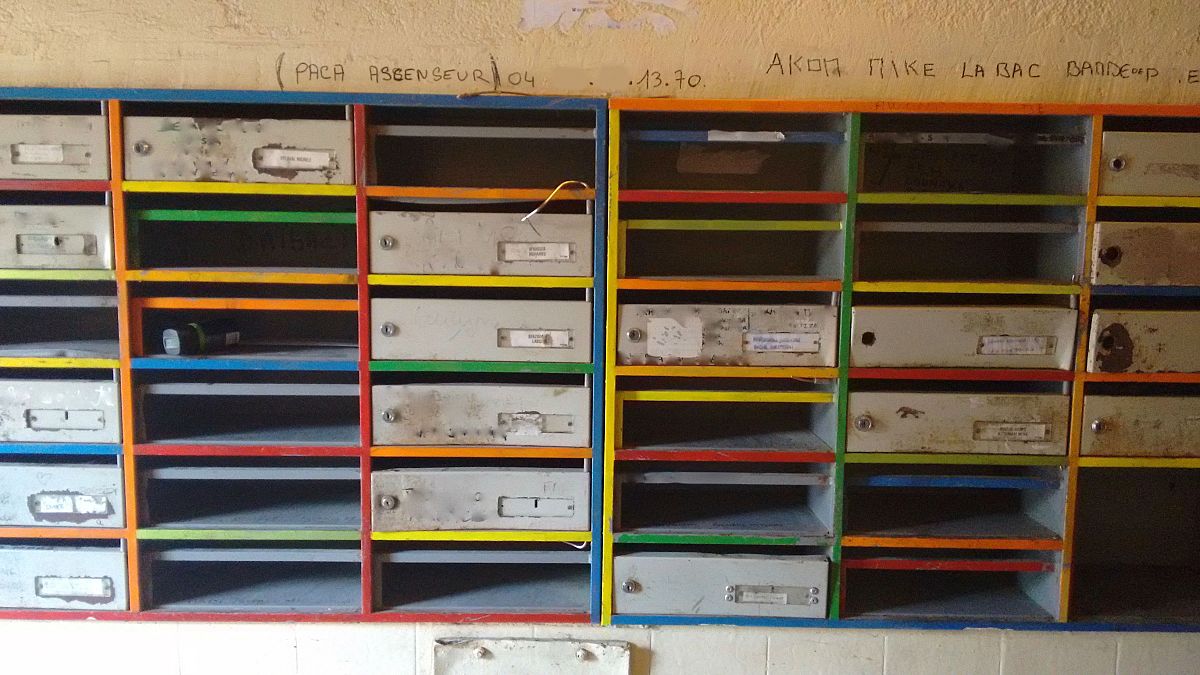With school and education provided by the state, one family say they are glad they chose to break the rules and live in Europe.
There is no typical illegal immigrant.
Each individual makes his or her own decision based on his or her own circumstances. Some endure tremendous hardship others find a better life.
Tahar and his wife Samia (not their real names) fit into the latter category.
Tahar arrived in France on a tourist visa from Algeria in 2013, before the refugee crisis struck Europe. His wife and their daughter took the same route in 2015, like Tahar disregarding the dates on their travel documents and setting up home.
Offering construction and plumbing services on the black market, Tahar says he can provide much better for his family than with his job as a firefighter in north-east Algeria.
The economic reasons made it an obligation rather than a choice to migrate, he told Euronews, adding:
“A workday in Algeria doesn’t pay for your dinner, here one day almost covers me for a month.”
But the black market is far from being fair, and many take advantage of his illegal status:
“Some recruiters [he estimates around one in five] have paid me very fairly (around 20%) and some [one in ten, he says] haven’t paid me at all. The rest either paid me unfairly or made me work overtime”, he says.
The most important factor in the family’s financial security, however, is their accommodation. They live in a largely abandoned residential block, free of rent, electricity and water charges.
Dozens of families have illegally set up home in the abandoned apartments of northern Marseille. Despite promising to pull down the blocks for years, the local authorities are showing no urgency to act. Nevertheless, Tahar says he has heard rumours that the illegal occupants will finally be evicted. Such an event could prove disastrous, as his earnings won’t stretch to regular rents and finding a landlord willing to overlook, and not take advantage of, his illegal status would be tough.
The city of Marseille said that dealing with irregular immigrants was not within their remit and referred questions to the regional authorities who declined to comment for this article.
However, Pascaline Curtet from La Cimade, an organisation which promotes the rights of refugees and migrants, says that there is in effect no official policy in Marseille and that the authorities make no proactive effort to seek out illegal migrants, either to offer them housing or to return them to their home countries.
Only in cases where specific complaints about disturbance of public order have been made, or where squats become too obvious to avoid, do the police step in.
Education and healthcare
While organisations such as La Cimade point to violations of human rights of immigrants, most of all the right to housing, Tahar says that his experience has been positive:
”Immigrants are not harassed or harmed, especially those that respect the laws and avoid criminal conduct”.
For these reasons, he says he’s not worried that his family will be deported and he hopes they will be able to stay in France indefinitely.
Samia and Tahar particularly appreciate having a right to health insurance, available to all those in France for at least three months.
Their daughter, 7, has a place in a French primary school, for which her parents only needed to prove she had received necessary immunisations and furnish an ID and a proof of address, furnished by an NGO.
Tahar says that she is now perfectly integrated and that he hopes “she’ll be a successful student and grow up to be a successful woman”.
Samia and Tahar are hoping to legalise their status in the years to come. This would put an end to the feeling of insecurity and allow them finally to visit their family back in Algeria. Not being able to meet them for years was the most difficult part of their experience. “I keep thinking what if my mom dies. My uncle died recently and I couldn’t even go to the funeral. Psychologically, it is really hard” Tahar says.
Pascaline Curtet notes that in general “the administration never seeks to promote the regularisation” of the status of illegal immigrants. But since they are parents of a child enrolled in a French school, Tahar and Samia have a right to apply for legal residence after five years of permanent stay in France . Although for Tahar this condition will be filled in 2018, he will probably apply in 2020 together with his wife. The procedure includes demonstrating sufficient integration in the French society, but the final outcome is uncertain, especially if the political climate changes.
